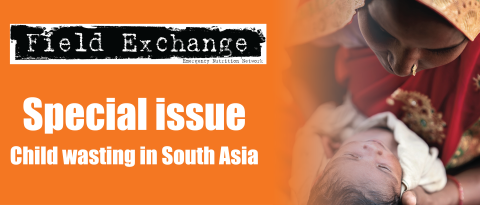Integrating nutrition interventions into an existing maternal, neonatal and child health programme in Bangladesh
Research snapshot1
Maternal undernutrition is a major public health concern globally, contributing to poor foetal and early childhood growth, and increased infant morbidity and mortality. Limited evidence exists on delivering multiple interventions for maternal nutrition simultaneously. Alive & Thrive addressed this gap by integrating nutrition services into an existing maternal, neonatal and child health (MNCH) programme in Bangladesh. In the nutrition-focused model, besides standard antenatal care (ANC), women received intensive antenatal and postpartum nutrition counselling, pregnancy weight monitoring, provision of free calcium and iron and folic acid (IFA) supplements, and promotion of optimal breastfeeding practices, all provided through monthly home visits by a health worker or volunteer. Community mobilisation was carried out simultaneously through videos and discussions with women, husbands, family members and community members. The effect of providing nutrition-focused MNCH compared with standard MNCH (ANC with standard nutrition counselling) was evaluated through a cluster-randomised evaluation.
Cross-sectional surveys were undertaken at baseline (2015) and endline (2016) with 300 and 1,000 pregnant or recently delivered women respectively per survey round. Difference-in-difference effect estimates were derived, adjusted for geographic clustering and infant age and sex. Household exposure to frontline workers was high in both groups (80-90%), but was significantly higher in nutrition-focused MNCH areas at endline. Mothers in the nutrition-focused MNCH group were visited more frequently than those in the standard MNCH group by health workers [6.0 times (95% CI: 5.8, 6.1 times) compared with 3.7 times (95% CI: 3.6, 3.9 times)] and by health volunteers [8.1 times (95% CI: 7.8, 8.5 times) compared with 3.2 times (95% CI: 2.9, 3.4 times)]. Coverage of community mobilisation activities was around 50%. Improvements were significantly greater in the nutrition-focused MNCH group than in the standard MNCH group for consumption of IFA [effect: 9.8 percentage points (pp); 46 tablets] and calcium supplements (effect: 12.8 pp; 50 tablets). Significant impacts were observed for the number of food groups consumed (effect: 1.6 food groups), percentage of women who consumed ≥5 food groups per day (effect: 30.0 pp), and daily intakes of several micronutrients. A significant impact was also observed for exclusive breastfeeding ((EBF); effect: 31 pp) but not for early initiation of breastfeeding. The authors conclude that the integration of nutrition interventions into ANC is effective when implemented well, particularly when facilitated by a solid and functional system for early pregnancy detection and ANC service delivery.
1 Nguyen PH, Kim SS, Sanghvi T, et al. Integrating Nutrition Interventions into an Existing Maternal, Neonatal, and Child Health Program Increased Maternal Dietary Diversity, Micronutrient Intake, and Exclusive Breastfeeding Practices in Bangladesh: Results of a Cluster-Randomized Program Evaluation. J Nutr. 2017;147(12):2326-2337. doi:10.3945/jn.117.257303


